Category: Politics
-

Cost of Voting in States
There’s a clear relationship between how a state voted in 2024 and how difficult that state makes it for people to vote.
-

Homicide in the States
Predicting state homicide rates from two factors: Political sentiment and the state’s total population.
-
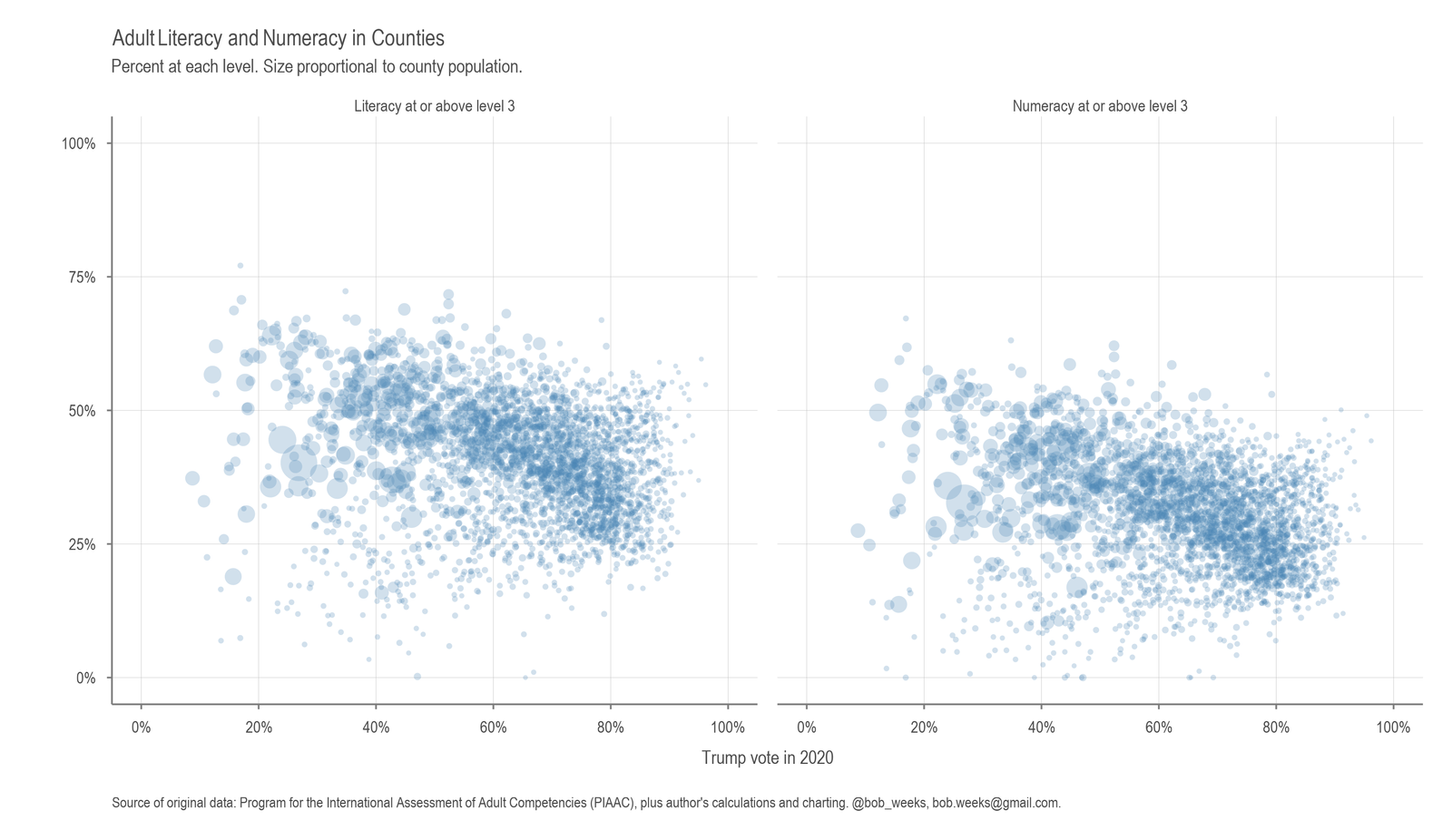
Adult Literacy and Numeracy in Counties
Analyzing literacy and numeracy rates in counties alongside political sentiment.
-
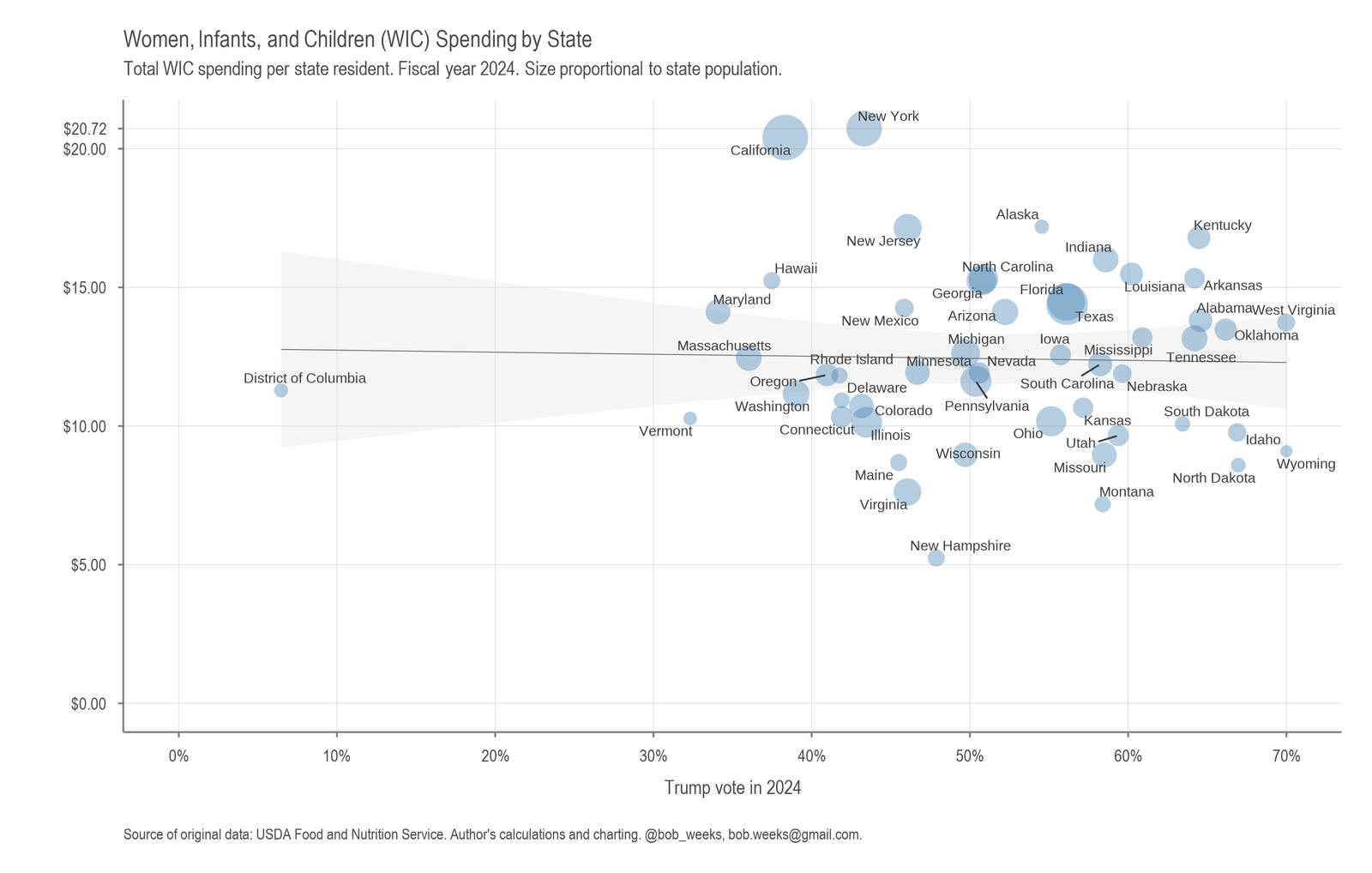
Women, Infants, and Children (WIC) Spending by State
Participation and spending on WIC by state political sentiment.
-

Cost of Voting and State Politics
Examining the relationship between state voting laws and political sentiment.
-
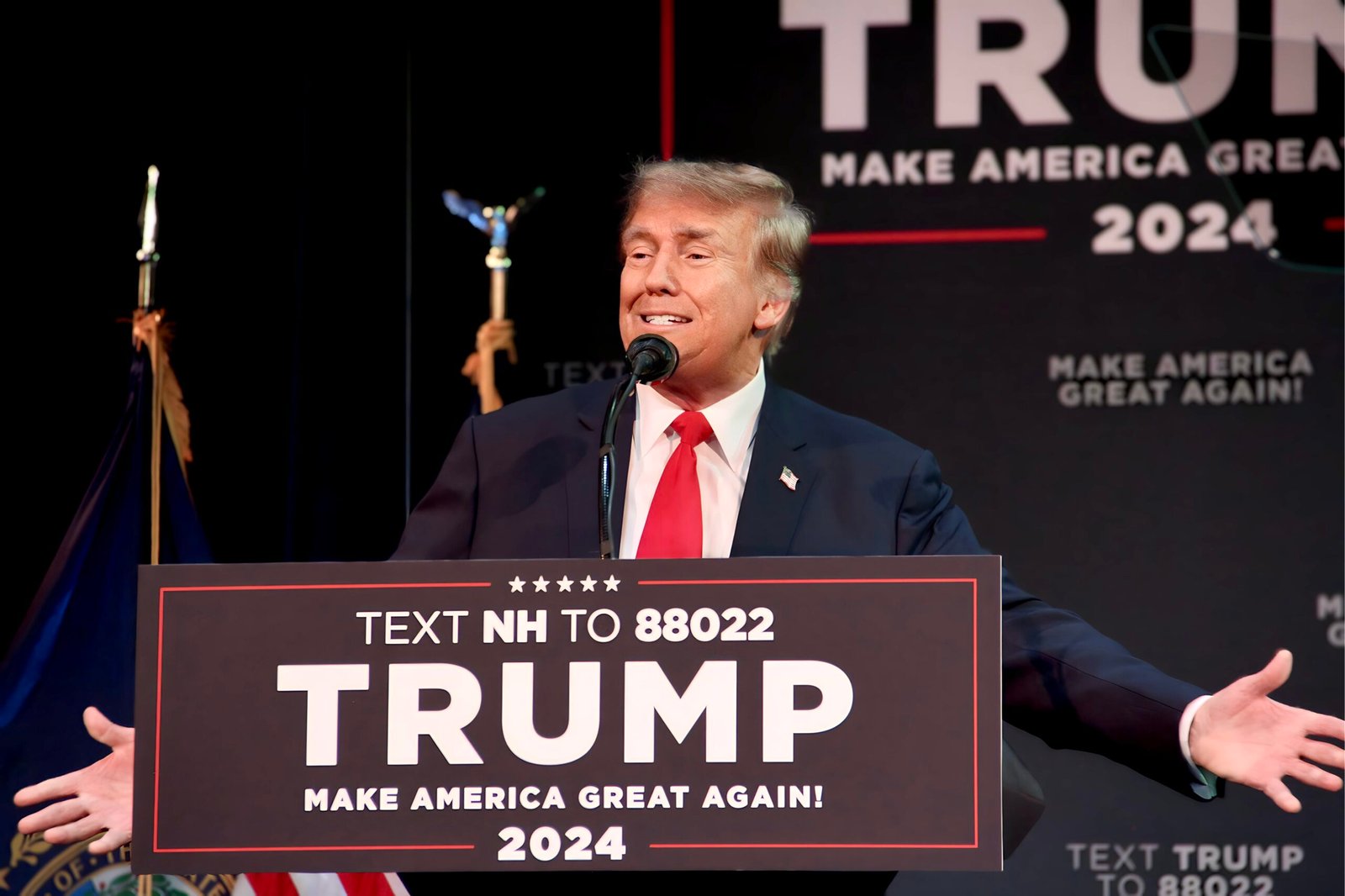
Trump Transcripts
A collection of Donald J. Trump transcripts.
-
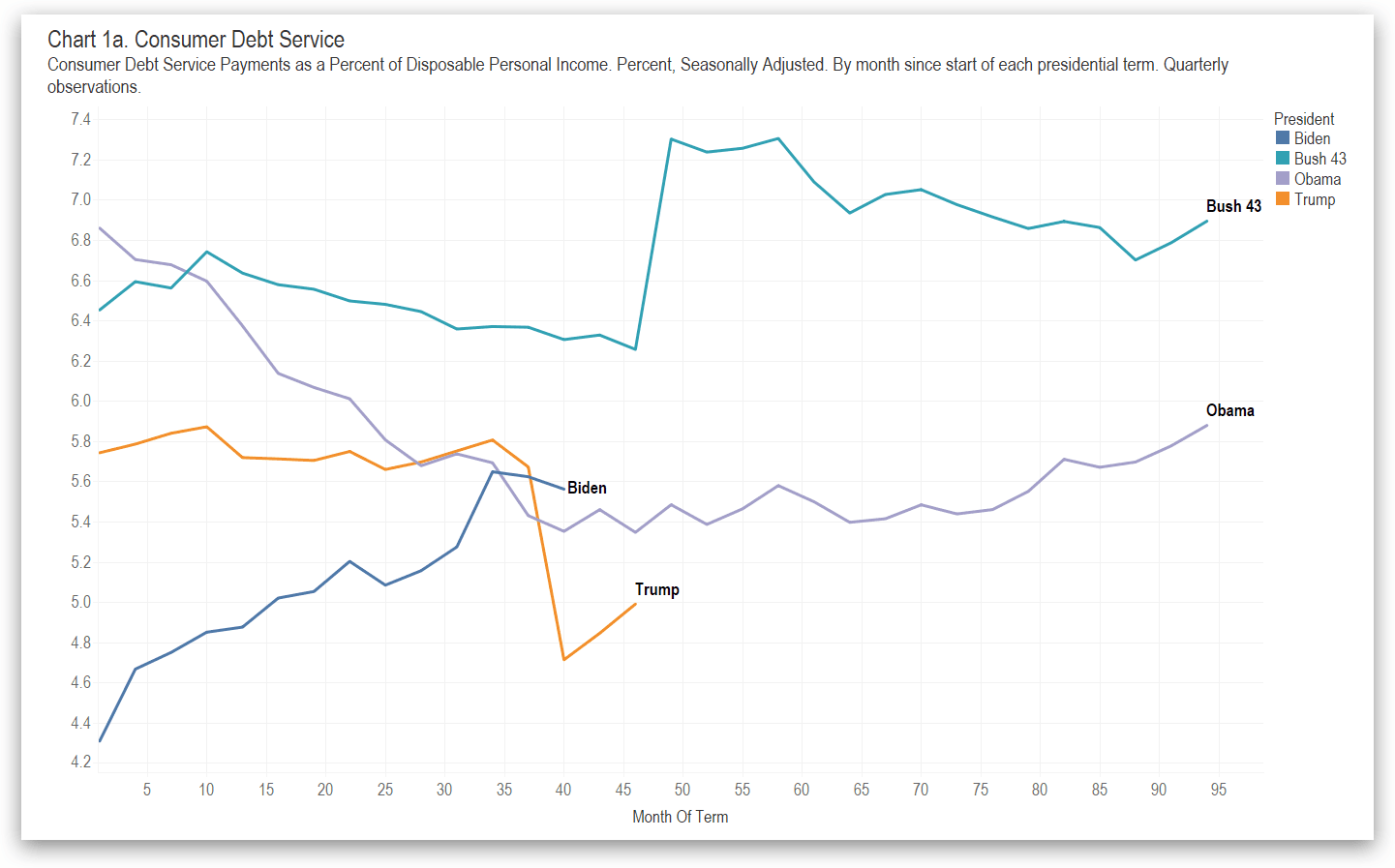
Understanding Consumer Debt Service Payments as a Percent of Disposable Personal Income
Consumer Debt Service Payments as a Percent of Disposable Personal Income is a financial metric that measures the proportion of after-tax income that households are using to pay off their debts.
-

Adult Literacy and Numeracy in Counties
Examining literacy and numeracy based on political preference.
-
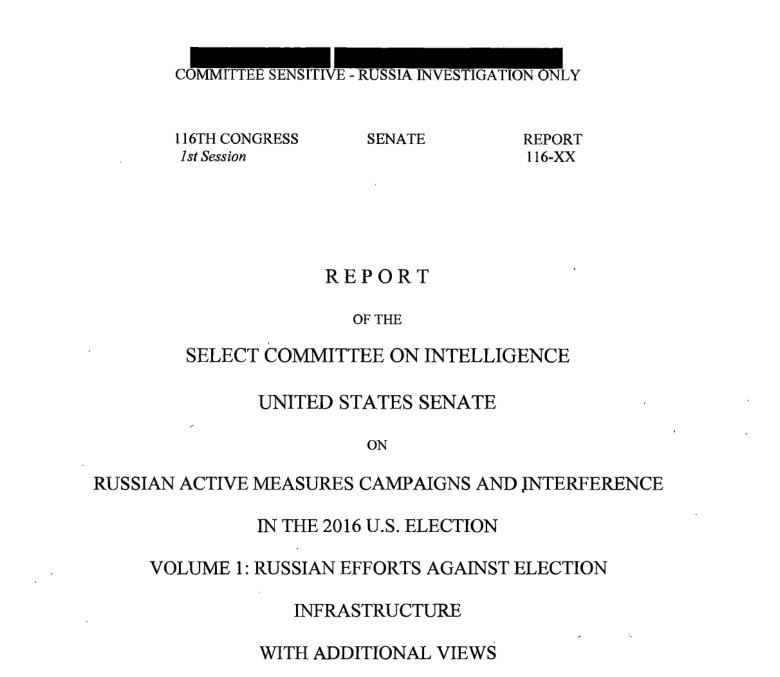
Senate Intelligence Committee Reports on Russian Active Measures Campaigns and Interference in the 2016 U.S. Election
These documents have been processed with Adobe Acrobat to produce searchable text.
-
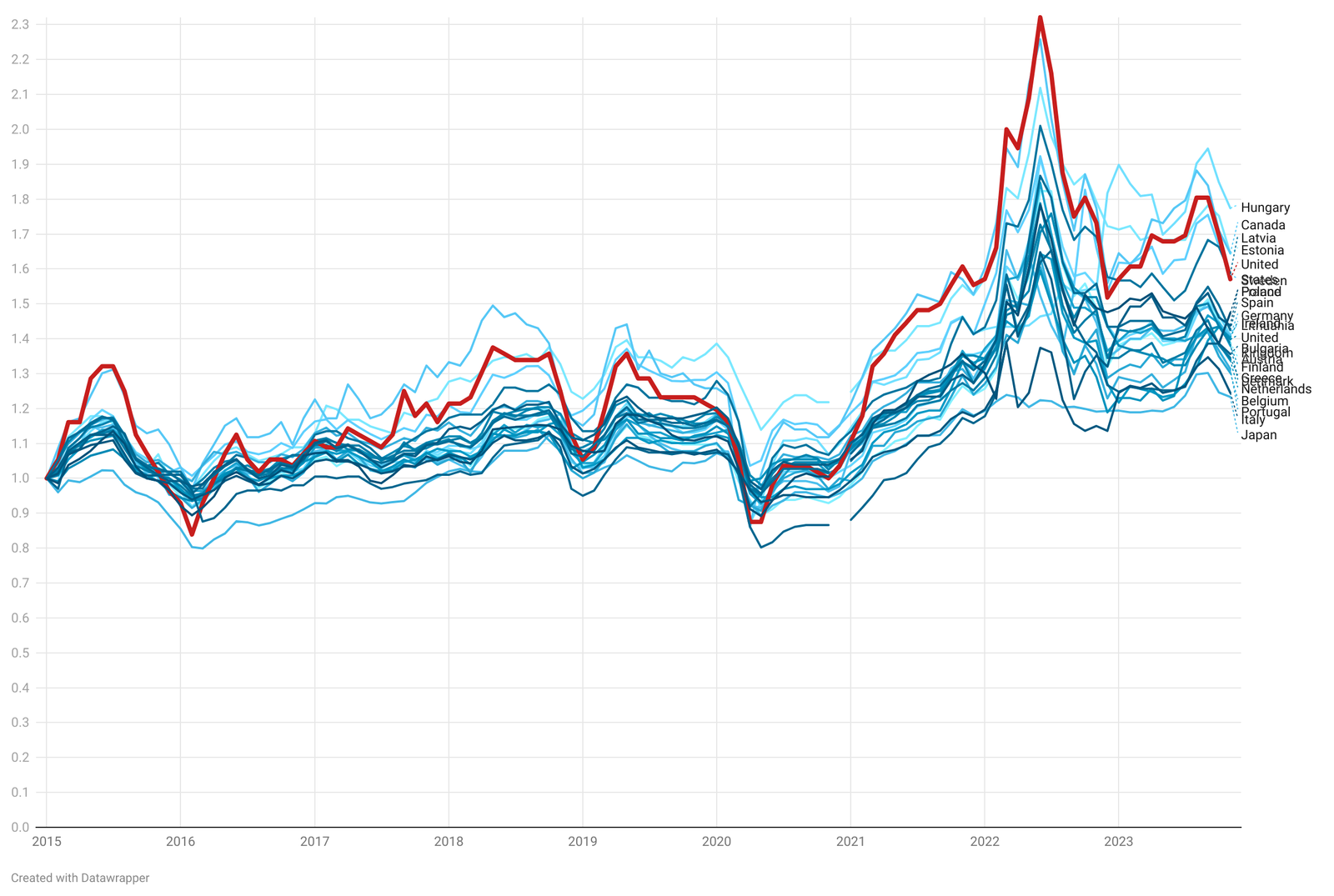
Gasoline Prices
This is an interactive chart.
-
Republicans Will Encourage Voting Before Election Day
This article, written by Walter Olson and published on Cato Institute, discusses a significant shift in the Republican Party’s stance on voting methods. Former President Donald Trump, who once criticized alternate voting methods as prone to fraud and urged Republicans to vote on Election Day, and the GOP are now encouraging the use of various…
-
How Robert F. Kennedy Jr. Sells Misleading Ideas
This article delves into the misleading rhetoric and tactics employed by Robert F. Kennedy Jr., an anti-vaccine activist and presidential candidate. Kennedy has been known to use a method called “data dumping” where he overwhelms listeners with a barrage of numbers, acronyms, and methodologies to falsely suggest that vaccine injuries are widespread. The New York…